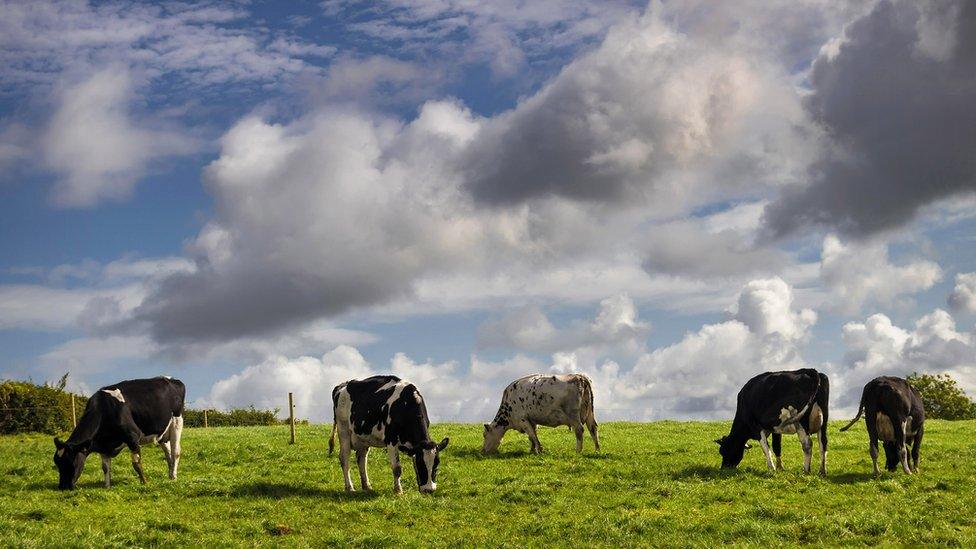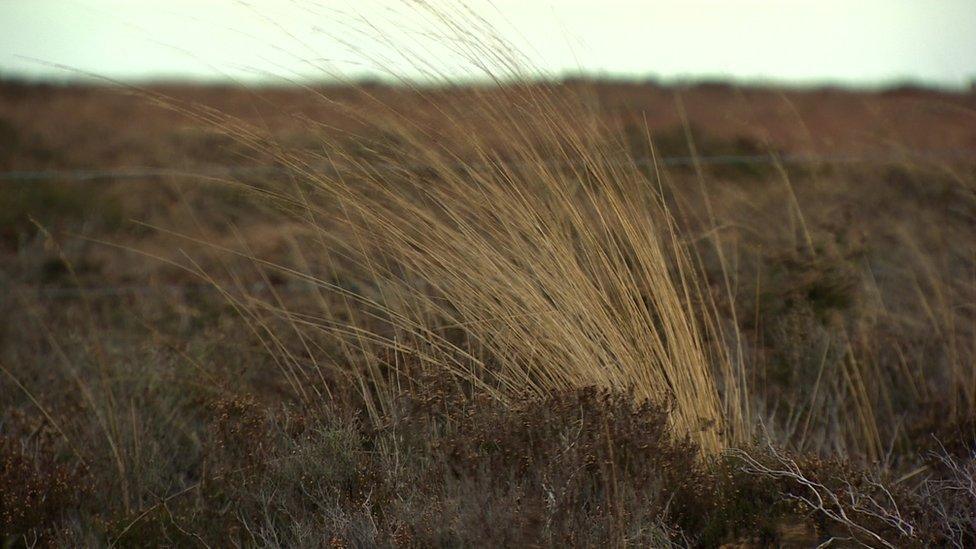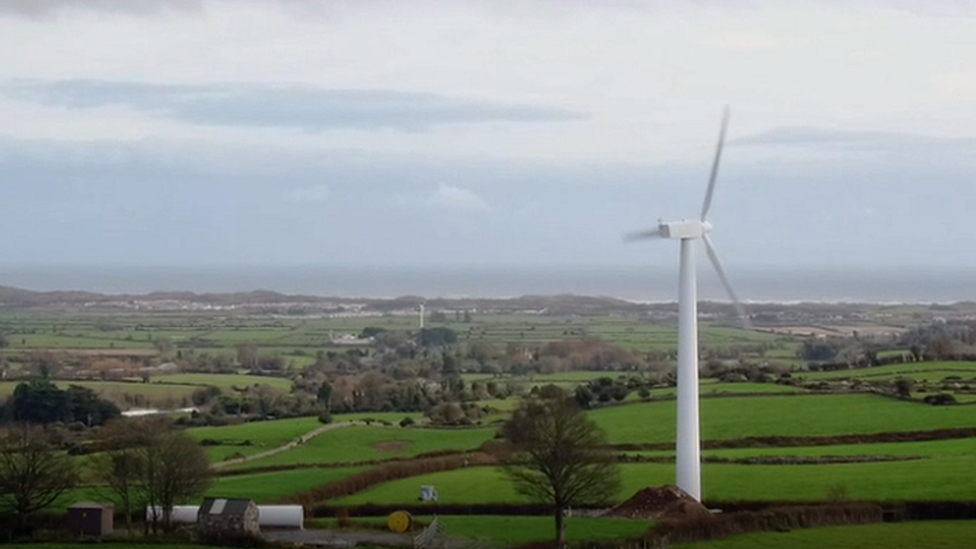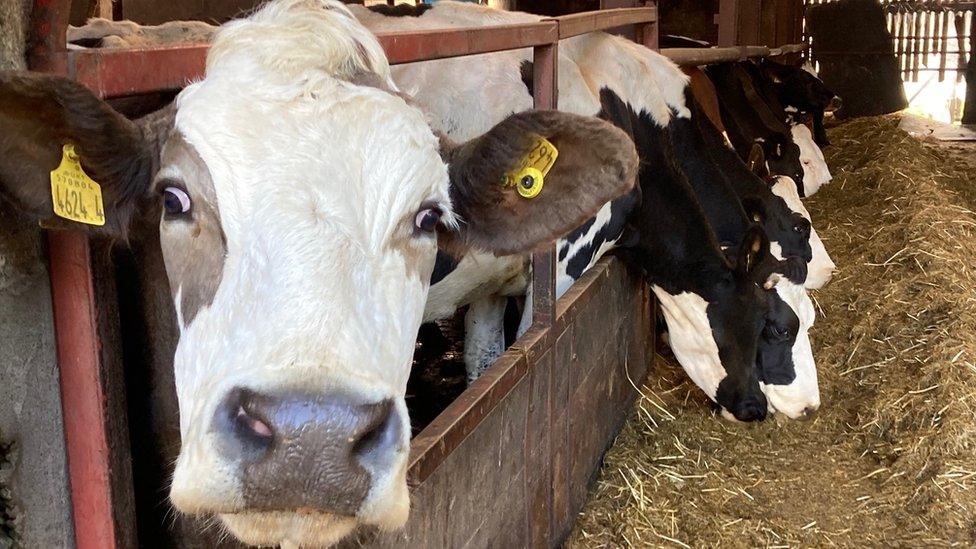Northern Ireland farms take part in nature friendly study
- Published

The farms taking part included cattle, sheep, mixed and dairy
Adopting nature-friendly farming practices could make agriculture in Northern Ireland more profitable, a new report suggests.
Any decline "would not necessarily be permanent", thanks to improvements in soil health, it said.
Seventeen farms took part in Striking the Balance, a study commissioned by the Nature Friendly Farming Network (NFFN).
They included cattle, sheep, mixed and dairy farms.
The study looked at what effect working within environmental limits would have on farm finances.
And it found that, if all the farms looked at moving to a maximum sustainable output (MSO) approach, there would be an average increase of 35% in profitability, once support payments were taken into account.
The MSO is a metric that determines at what point a farm achieves its optimum output while harnessing the natural resources available to it.
It aims to show that farms reach a point where inputs like fertiliser, plant protection products and feed are reduced and output is maximised when natural resources are used efficiently.
Those inputs are corrective variable costs (CVC) which happen when production is overshooting the land's capacity, compared to productive variable costs incurred when working within nature's boundaries.
Phil Carson, from the network, said the study showed that there need not be a "trade-off" between "ambitious environmental action" and profitability.
"With the right policies, support and advice, farm businesses can reap the benefits of an approach which harnesses nature's potential."
The study calls the move towards MSO "potentially transformational" for the economic outlook of farming in Northern Ireland.
Five of the 17 farms in the study were operating below MSO level, meaning they could increase their livestock while still operating within natural limits.
Switching to breeds which are able to thrive in the local environment would also save farmers money as those animals would need less grain or concentrates and could stay outside for more of the year, while studies suggests fertiliser-free uplands have seen little reduction in dry matter yields compared to those intensively using artificial fertilisers.
The NFFN has called for "significant changes" in farm management to enable the transition to an "economically and environmentally sound" farming system.
It has made four recommendations, including:
Trialling a new measure of farm performance based around margins rather than output and productivity
Department of Agriculture, Environment and Rural Affairs (Daera) Farming with Nature package to support farmers wanting to harness natural resources and reduce spend on fertilisers
Daera to come up with ways of reducing fixed costs on farms, such as machinery sharing and group schemes for capital investment
Encourage more mixed livestock systems and hardier breeds within Northern Ireland
Earlier this year, the Daera announced a timeline for the introduction of a new farm support and development programme, which aims to support farming and enhance environmental sustainability.
Related topics
- Published17 January 2018

- Published20 January 2022

- Published16 December 2021

- Published2 November 2021
